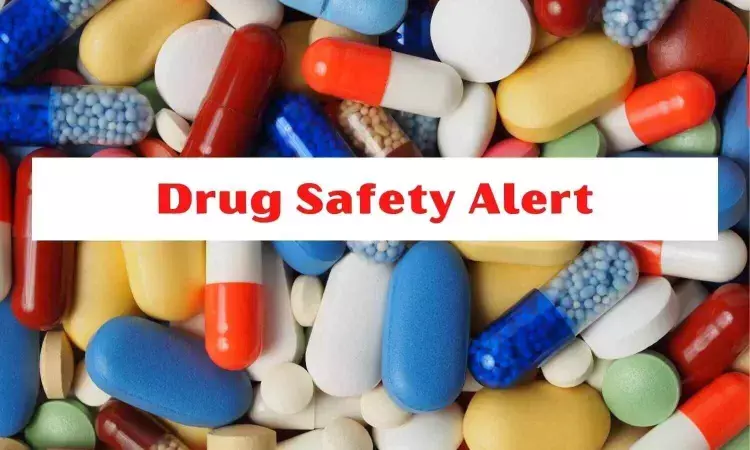- Home
- Medical news & Guidelines
- Anesthesiology
- Cardiology and CTVS
- Critical Care
- Dentistry
- Dermatology
- Diabetes and Endocrinology
- ENT
- Gastroenterology
- Medicine
- Nephrology
- Neurology
- Obstretics-Gynaecology
- Oncology
- Ophthalmology
- Orthopaedics
- Pediatrics-Neonatology
- Psychiatry
- Pulmonology
- Radiology
- Surgery
- Urology
- Laboratory Medicine
- Diet
- Nursing
- Paramedical
- Physiotherapy
- Health news
- Fact Check
- Bone Health Fact Check
- Brain Health Fact Check
- Cancer Related Fact Check
- Child Care Fact Check
- Dental and oral health fact check
- Diabetes and metabolic health fact check
- Diet and Nutrition Fact Check
- Eye and ENT Care Fact Check
- Fitness fact check
- Gut health fact check
- Heart health fact check
- Kidney health fact check
- Medical education fact check
- Men's health fact check
- Respiratory fact check
- Skin and hair care fact check
- Vaccine and Immunization fact check
- Women's health fact check
- AYUSH
- State News
- Andaman and Nicobar Islands
- Andhra Pradesh
- Arunachal Pradesh
- Assam
- Bihar
- Chandigarh
- Chattisgarh
- Dadra and Nagar Haveli
- Daman and Diu
- Delhi
- Goa
- Gujarat
- Haryana
- Himachal Pradesh
- Jammu & Kashmir
- Jharkhand
- Karnataka
- Kerala
- Ladakh
- Lakshadweep
- Madhya Pradesh
- Maharashtra
- Manipur
- Meghalaya
- Mizoram
- Nagaland
- Odisha
- Puducherry
- Punjab
- Rajasthan
- Sikkim
- Tamil Nadu
- Telangana
- Tripura
- Uttar Pradesh
- Uttrakhand
- West Bengal
- Medical Education
- Industry
Drug Safety Alert: IPC Flags Adverse Reactions to Metronidazole, Luliconazole, Dalteparin, Gliclazide, and Tramadol

New Delhi: The Indian Pharmacopoeia Commission (IPC), through its recently issued drug safety alert for the month of March, has revealed adverse drug reactions linked with 5 popular drugs named Metronidazole, Luliconazole, Dalteparin, Gliclazide, and Tramadol.
In connection with the above, the Indian Pharmacopoeia Commission (IPC) has cautioned healthcare professionals to diligently monitor the potential occurrence of adverse drug reactions (ADRs) when administering these 5 drugs named Metronidazole, Luliconazole, Dalteparin, Gliclazide, and Tramadol.
This came after a preliminary analysis of adverse drug reactions (ADRs) from the Pharmacovigilance Programme of India (PvPI) database.
In accordance with the drug safety alert, metronidazole, indicated for the treatment of amoebiasis, urogenital trichomoniasis, and giardiasis, can cause acute generalized exanthematous pustulosis (AGEP). Acute generalized exanthematous pustulosis (AGEP) is a rare, severe, drug-induced skin reaction characterized by the sudden onset of numerous, non-follicular, sterile pustules on an erythematous base, often accompanied by fever and leukocytosis.
Furthermore, the alert added that Luliconazole, which is indicated for the treatment of cutaneous mycosis, viz., tinea pedis, tinea corporis, and tinea cruris, can cause chloasma/melasma.
Melasma, also known as chloasma or the "mask of pregnancy," is a common skin condition that causes brown or grayish patches, typically on the face, and is often triggered by sun exposure and hormonal changes.
In addition to the above, the alert mentioned that dalteparin is indicated for the extended treatment of symptomatic venous thromboembolism (VTE), proximal deep vein thrombosis (DVT), and/or pulmonary embolism (PE) to reduce the recurrence of VTE in patients with cancer. Dalteparin may cause muscle spasms.
In continuation, the alert stated that Gliclazide, indicated for the treatment of all types of maturity onset diabetes and diabetes with or without obesity in adults, can lead to the adverse drug reaction erythema multiforme. Erythema multiforme (EM) is a skin disorder, often triggered by infections or medications, characterized by a rash with target-like lesions, sometimes accompanied by mouth sores and other symptoms.
Further, the alert stated that Tramadol, which is indicated for the treatment of severe acute and chronic pain, diagnostic measures, and surgical pain, can lead to the adverse drug reaction fixed drug eruption.
Fixed drug eruption (FDE) is a skin reaction characterized by recurring, sharply defined lesions in the same location each time a specific medication is taken. These lesions are usually dusky red or violaceous plaques that may leave post-inflammatory hyperpigmentation after resolving.
Now, as per the issued drug safety alert, the following suspected drug is associated with the ADRs, as given below:
S. No. | Suspected Drugs | Indication(s) | Adverse Drug Reactions |
1 | Metronidazole | For the treatment of amoebiasis, urogenital trichomoniasis & giardiasis. | Acute Generalised Exanthematous Pustulosis (AGEP) |
2 | Luliconazole | For the treatment of cutaneous mycosis viz. Tinea pedis, Tinea corporis and Tinea cruris. | Chloasma/Melasma |
3 | Dalteparin | For the extended treatment of symptomatic Venous Thromboembolism (VTE) proximal Deep Vein Thrombosis (DVT) and/or Pulmonary Embolism (PE) to reduce the recurrence of VTE in patients with cancer. | Muscle spasms |
4 | Gliclazide | Indicated for the treatment of all types of maturity onset diabetes, diabetes without or with obesity in adults. | Erythema multiforme |
5 | Tramadol | For the treatment of severe acute and chronic pain, diagnostic measures and surgical pain. | Fixed Drug Eruption |
In light of the above, the Indian Pharmacopoeia Commission, Ministry of Health and Family Welfare, has advised healthcare professionals, patients, and consumers to closely monitor the possibility of the above ADRs associated with the use of the above suspected drugs.
Further, the safety alert added, "If such reactions are encountered, please report to the NCC-PvPI, IPC, by filling of Suspected Adverse Drug Reactions Reporting Form/Medicines Side Effect Reporting Form for Consumer (http://www.ipc.gov.in), through the Android Mobile App "ADR PvPI App" and PvPIHelpline No. 1800-180-3024 (toll-free)."
To view the notice, click the link below:
Mpharm (Pharmacology)
Susmita Roy, B pharm, M pharm Pharmacology, graduated from Gurunanak Institute of Pharmaceutical Science and Technology with a bachelor's degree in Pharmacy. She is currently working as an assistant professor at Haldia Institute of Pharmacy in West Bengal. She has been part of Medical Dialogues since March 2021.


